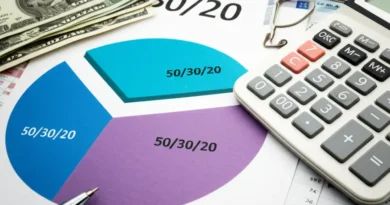How Economic Trends Impact Your Personal Finances
Understanding economic trends is crucial for anyone looking to take control of their personal finances. These trends encompass shifts in the economy that can influence everything from employment to inflation rates, interest rates, and consumer behavior. When you comprehend how these changes take shape and impact your financial standing, you can make informed decisions that help you manage your money better.
Economic trends can be seasonal or cyclical, reflecting short-term fluctuations in the market, or they can indicate long-term movements that signal shifts in the economy. To get a clearer picture, let’s break down some major economic trends and how they can affect your personal financial landscape.
1. Employment Trends
The state of employment in the economy directly affects your finances. When unemployment rates are low, job opportunities increase, leading to higher wages as companies compete for a smaller pool of job seekers. Conversely, in a high-unemployment scenario, job security becomes a concern, and salaries may stagnate or decrease as more applicants flood the market. Keeping an eye on employment trends can give you important insights into your job prospects and earning potential.
2. Inflation Rates
Inflation is often described as the increase in prices over time, meaning that the purchasing power of your money decreases. When inflation rates rise, the cost of living goes up, affecting everything from groceries to rent. Understanding inflation can help you adjust your budget and spending habits accordingly. For instance, if you foresee rising inflation, you might want to allocate more funds to savings or investments before prices increase.
3. Interest Rates
Interest rates significantly influence personal finance decisions, particularly if you are looking to apply for a mortgage, car loan, or any form of credit. When interest rates are low, borrowing becomes less expensive, encouraging individuals to take loans for investments like homes or educational purposes. Conversely, high interest rates can deter borrowing, resulting in slower economic growth. Keeping track of interest rate trends can help you time your borrowing strategy effectively.
4. Consumer Confidence
Consumer confidence measures how optimistic or pessimistic consumers are regarding their financial situation and the state of the economy. When confidence is high, people are more likely to spend, which can lead to economic growth. If consumer confidence dips, spending typically decreases, leading to a potential slowdown. Understanding consumer confidence indicators helps you gauge market stability and prepares you to react appropriately with your investments and spending habits.
5. Stock Market Trends
The stock market is often seen as a barometer for economic health. Fluctuations in stock prices often reflect investor sentiment and can be influenced by a myriad of factors, such as earnings reports, international news, and trends in interest rates. For personal finance, monitoring stock trends can inform investment decisions, whether you’re considering contributing to a retirement account or investing in individual stocks.
6. Real Estate Market Conditions
The real estate market is influenced by economic trends, including demand, migration patterns, and interest rates. Understanding local real estate trends is essential if you are considering purchasing or selling property. A booming market may signal a great time to sell but could also mean higher prices for buyers. Alternatively, a downturn in real estate may present opportunities, such as lower prices for buying or negotiating better terms on a sale.
Conclusion
Economic trends will continue to shape personal finance, driving individual decisions about spending, investing, saving, and preparing for the future. The ability to anticipate these trends, understand their implications, and adjust your financial strategy accordingly is key to achieving long-term financial stability and success.




